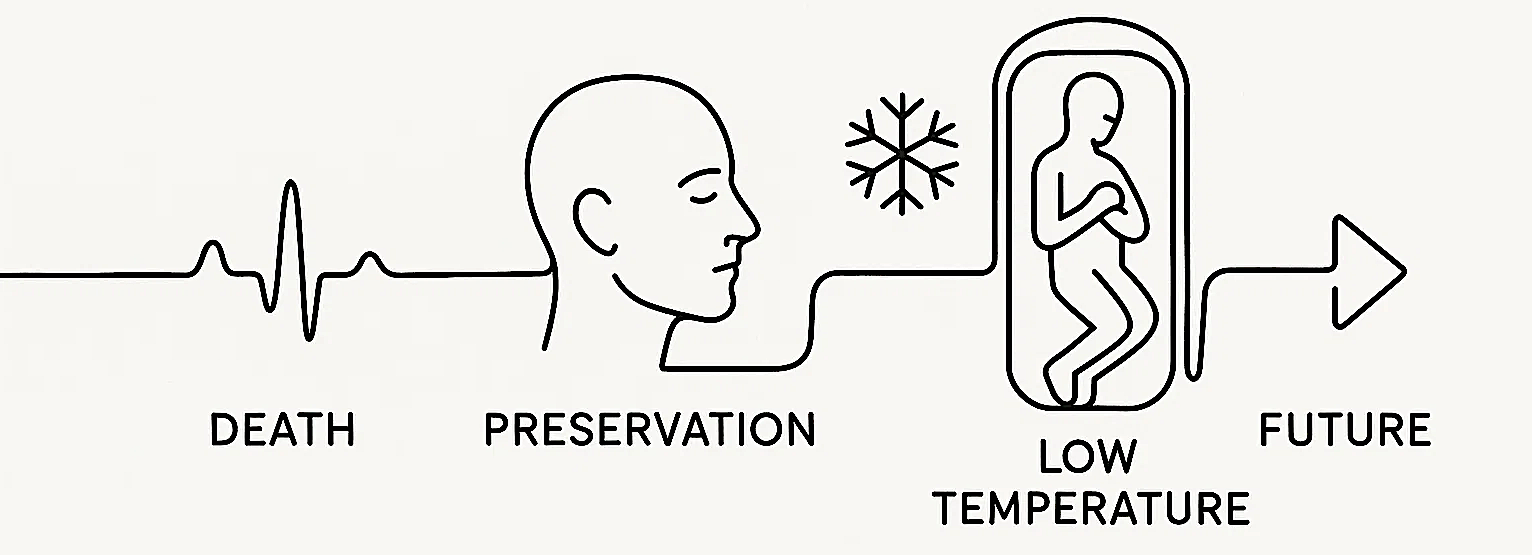Introduction to cryopreservation
What is human cryopreservation and how does it work?
Chapter 3 : Is Cryonics for me?

3.1. A Love for Life & Curiosity
Do you have the kind of relationship with existence, that pursuing more of it feel obvious rather than strange? Some people genuinely want to see what happens next, love being alive enough to keep going, or view uncertainty about the far future as exciting rather than threatening. Others don't, and that's okay. By examining what actually drives this choice at the values level, you can figure out whether cryopreservation aligns with how you actually feel about life and your place in it, rather than treating it as a purely analytical decision.

3.2. The Solitary Decision
Choosing cryopreservation usually means choosing differently from everyone around you. This creates a specific kind of psychological difficulty that's distinct from the technical or economic questions. You're making a call that your family might not understand, your friends might mock, and that carries real social costs in the present. The choice also forces you to examine your own motivations honestly: are you running from death or running toward something? Is this selfish or is that framing itself confused? And there's the uncomfortable question of continuity: if you succeed, you might wake in a world where everyone you knew is gone. This topic helps you sit with that solitude and figure out whether you can make this decision authentically for yourself, independent of social proof or the comfort of consensus.

3.3. The Rational Mindset
Most people approach death with resignation or spirituality, but there's a third path: treating it as an engineering problem with probabilistic solutions. This topic exists because cultural defaults around death aren't optimized for your actual survival. If you can shift from "death is natural and inevitable" to "death is a technical challenge with uncertain but non-zero solutions," the math changes completely. A 1% chance of revival dominates 0% chance of anything, and accepting permanent cessation because cryopreservation seems weird is just status quo bias with higher stakes. By reframing death through an engineering lens and taking expected value seriously, you can evaluate whether the rational move is to try something uncertain or accept certain oblivion.

3.4. Personal Values & Religion
Biostasis intersects with deeply held beliefs about what happens after death, whether consciousness is substrate-dependent, and what counts as a meaningful continuation of you. If you have religious commitments, you need to work out whether pursuing biological preservation conflicts with your theology or actually complements it. The same applies to secular value systems: does choosing cryonics mean you're clinging to material existence inappropriately, or is accepting death without resistance just giving up? By examining how your existing values and beliefs actually interact with these options, you can determine whether cryopreservation fits coherently into your worldview or requires revising beliefs you thought were settled.
Have we sparked your curiosity?
Learn more about what we offer and what it costs.









